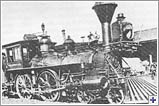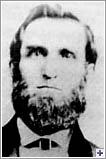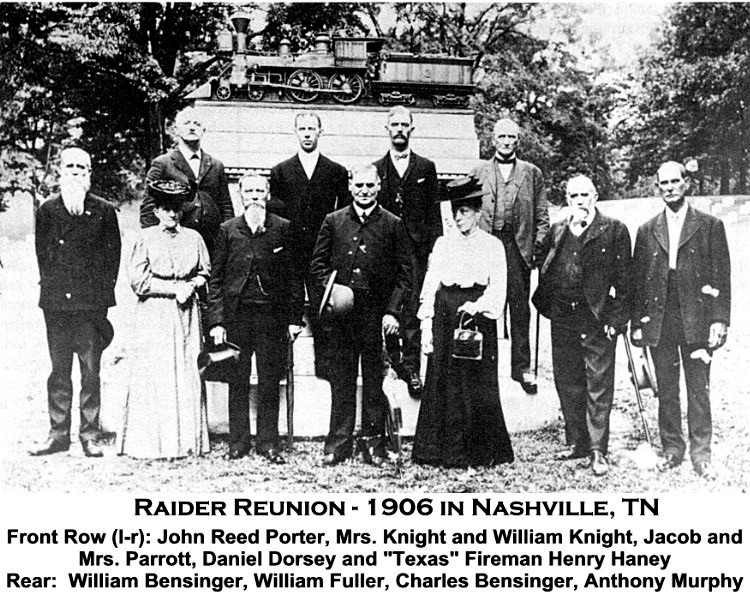 Georgia General Hijack, was the commandeering of a southern locomotive, The General, out of Marietta, Georgia, by a band of Union Raider Patriots. In the early spring of 1862, Northern forces advanced on Huntsville, Alabama, heading for Chattanooga, Tennessee. Union general Ormsby Mitchel accepted the offer of a civilian spy, James J. Andrews, a contraband merchant and trader between the lines, to lead a raiding party behind Confederate lines to Atlanta, Georgia, steal a locomotive, and race northward, destroying track, telegraph lines, and maybe bridges toward Chattanooga. The raid thus aimed to knock out the Western and Atlantic Railroad, which supplied Confederate forces at Chattanooga, just as Mitchel’s army advanced.
Georgia General Hijack, was the commandeering of a southern locomotive, The General, out of Marietta, Georgia, by a band of Union Raider Patriots. In the early spring of 1862, Northern forces advanced on Huntsville, Alabama, heading for Chattanooga, Tennessee. Union general Ormsby Mitchel accepted the offer of a civilian spy, James J. Andrews, a contraband merchant and trader between the lines, to lead a raiding party behind Confederate lines to Atlanta, Georgia, steal a locomotive, and race northward, destroying track, telegraph lines, and maybe bridges toward Chattanooga. The raid thus aimed to knock out the Western and Atlantic Railroad, which supplied Confederate forces at Chattanooga, just as Mitchel’s army advanced.
 There were 24 men involved in this Georgia raid. Two of them were civilians James J Andrews, the leader and William Campbell. Five men came from the 2nd Ohio Infantry Regiment, nine from the 21st Ohio Infantry Regiment, and eight from the 33rd Ohio Infantry Regiment. On April 7, 1862, all of the volunteers were warned of the hazardous nature of the raid and if caught dressed as civilians, they would be considered spies, not soldiers and would probably hang. They went into Shelbyville to purchase civilian clothing and armed themselves with revolvers. That night one mile east of Shelbyville, James J. Andrews gave them his final instructions. They were to work their way to Marietta Georgia, by midnight of April 10th. Early on the morning of April 11th they would seize a train and begin their destructive ride north, burning bridges, tearing up telegraph lines and railroad tracks.
There were 24 men involved in this Georgia raid. Two of them were civilians James J Andrews, the leader and William Campbell. Five men came from the 2nd Ohio Infantry Regiment, nine from the 21st Ohio Infantry Regiment, and eight from the 33rd Ohio Infantry Regiment. On April 7, 1862, all of the volunteers were warned of the hazardous nature of the raid and if caught dressed as civilians, they would be considered spies, not soldiers and would probably hang. They went into Shelbyville to purchase civilian clothing and armed themselves with revolvers. That night one mile east of Shelbyville, James J. Andrews gave them his final instructions. They were to work their way to Marietta Georgia, by midnight of April 10th. Early on the morning of April 11th they would seize a train and begin their destructive ride north, burning bridges, tearing up telegraph lines and railroad tracks.
Dressed in civilian attire traveling in small parties, the men made their way to Marietta, Georgia. On April 12, at 5 A.M. Andrews and 19 of his volunteers boarded the passenger cars behind the steam engine General. At 6:00 AM, the train drew into Big Shanty, that wasn’t equipped with telegraph. The whistle blew and the conductor pulled out his watch and called out “Big Shanty twenty minutes for breakfast!” the conductor, engineer, fireman and most of the passengers quickly entered the Lacy Hotel for breakfast. Andrews moved slowly alongside the train toward the locomotive, with him were his engineers. They climbed into the cab and seized the throttle. Other raiders sneaked behind the last boxcar and uncoupled it from the passenger cars. Andrews gave a signal and the other 16 raiders jumped into an empty boxcar. The raiders steamed out of Big Shanty, leaving behind passengers, crew members, and onlookers, which included a number of Confederate soldiers from Camp McDonald, which stood directly opposite the Lacy Hotel.
Pursuit began immediately, when three railroad men ran after the locomotive, eventually commandeering a platform car. Two of them, Anthony Murphy and William Fuller, persisted in their chase for the next seven hours and over eighty-seven miles. First suspecting the train thieves to be Confederate deserters, the pursuers acquired a locomotive at Etowah Station. Aware that they were being chased, Andrew’s men cut the telegraph lines and pried up rails. Murphy and Fuller switched locomotives, they used three that day, picked up more men and kept up the chase. The train thieves tried to burn the bridge at the Oostanaula River near Resaca, but the pursuers were too close behind, so close, that at Tilton the General could take on only a little water and wood. At about 1 p.m. it ran out of steam two miles north of Ringgold, Georgia, with the Southerners, close behind. The raiders, knowing that the hijacking had failed, scattered into the nearby woods.
Within a week, Andrews and all 21 raiders, including the two who had failed to board the train for its 87 mile adventure, were captured. Of the original 24 hijackers of the Georgia General, 8 were hung as spies, 8 managed to escape Confederate prison camps and six were later exchanged, after suffering a brutal incarceration.
Their actions were considered to be a terrorist act by the Confederacy, but they were championed as heroes by the Union. Nearly a year later, on March 25, 1863, six of the surviving raiders were the first soldiers ever presented with the nation’s highest military award, the Medal of Honor. Eventually, 19 of the 24 men, including four of those hanged as spies in Georgia, were awarded Medals of Honor. As civilians neither James J. Andrews or William Campbell were eligible for the award.
The hijacking of the Georgia General, by Union Raider Patriots, was an incredibly daring deed and the bold efforts inspired future stealthy adventures behind the Confederate lines.
Bummer



One of those great war stories that sounds like Hollywood made it up. I’ll never be able to hear about this raid without thinking of the great Buster Keaton movie The General, which of course has little to do with this story except it’s about hijacking a train during the Civil War.
Louis,
Buster Keaton, an all time favorite. Great story line, wish there was a better ending. Thanks for following!
Bummer